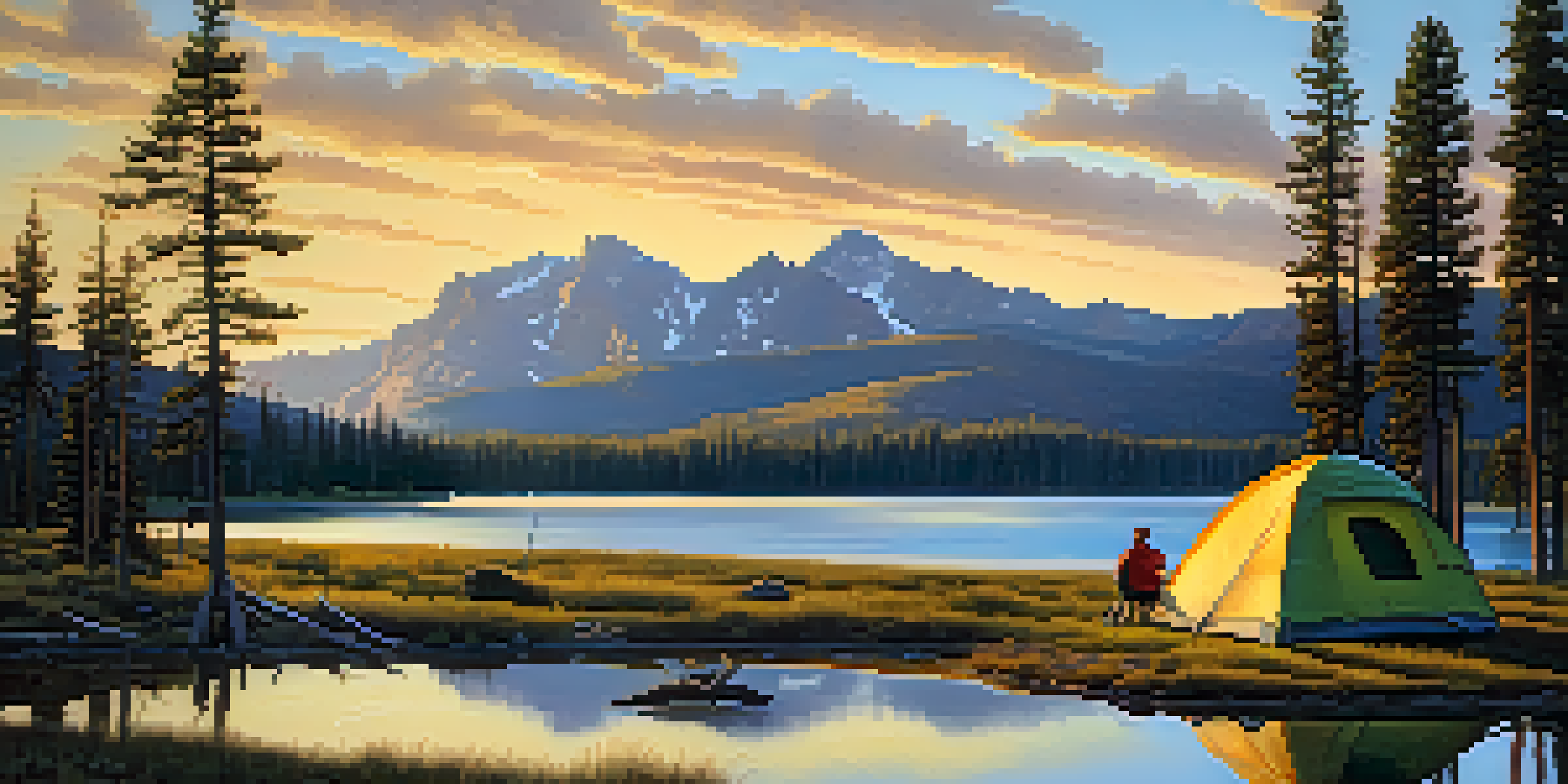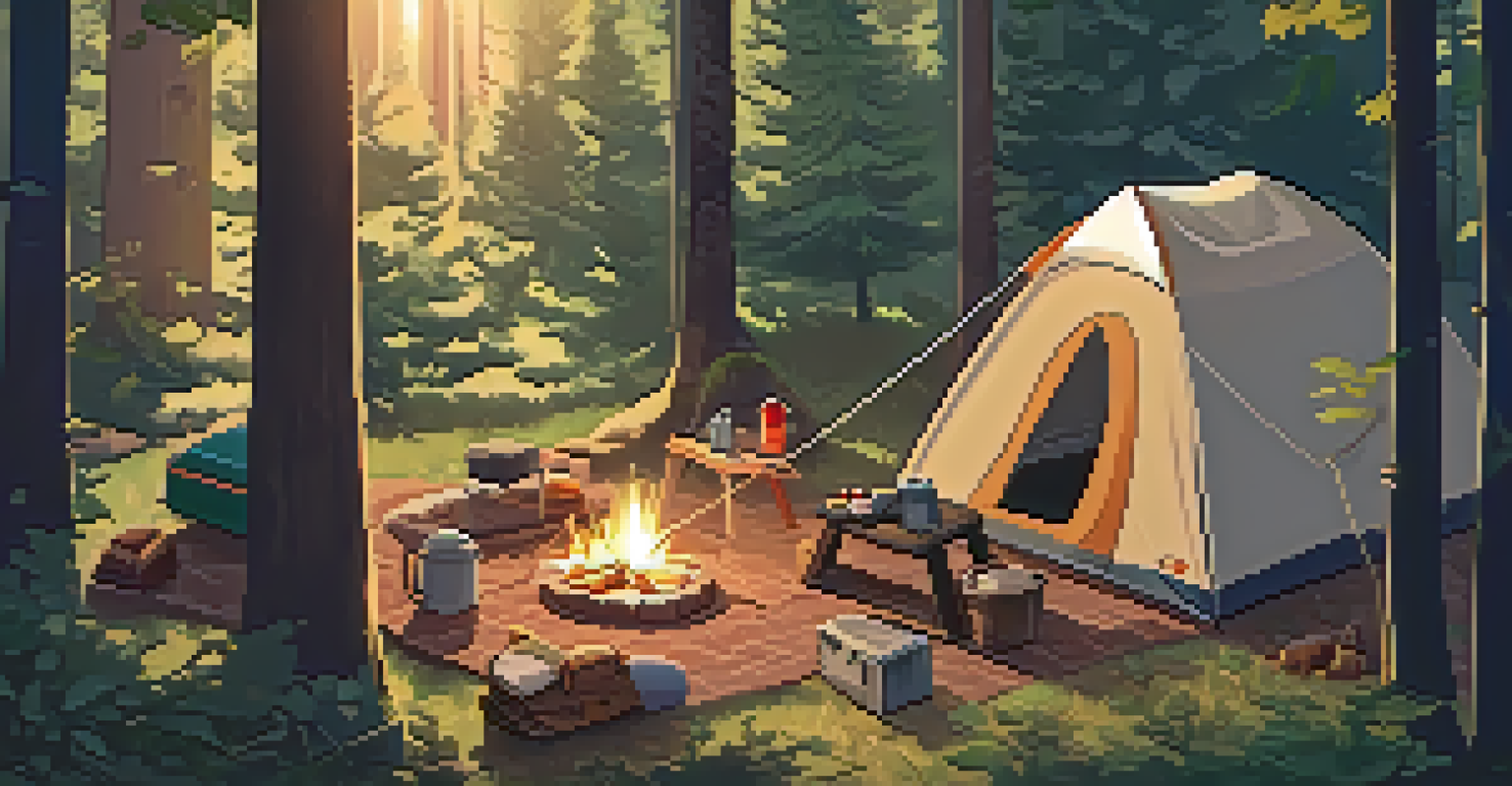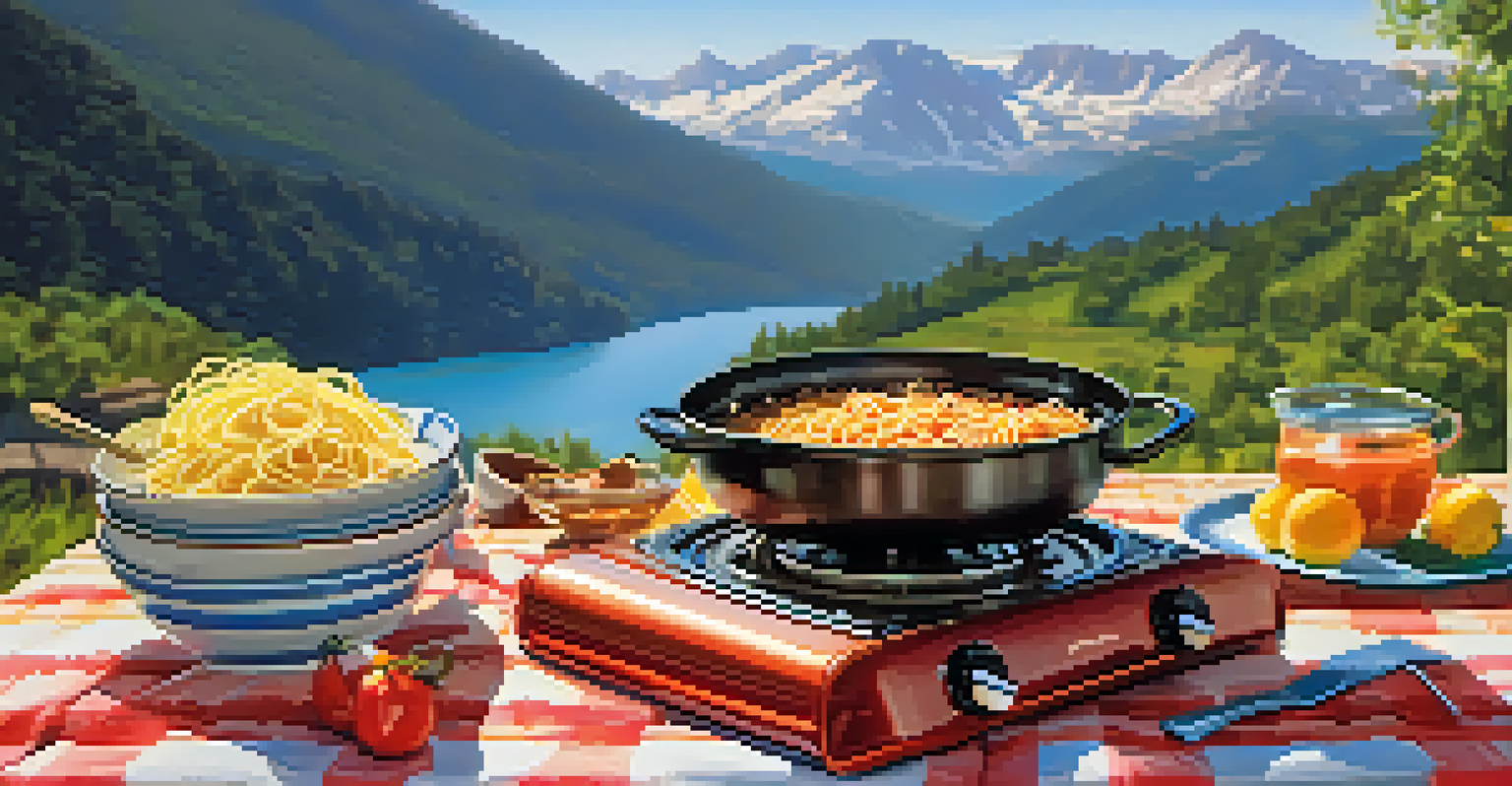Camping in National Parks: Tips for a Memorable Experience

Choose the Right National Park for Your Adventure
With so many stunning national parks across the country, choosing the right one can feel overwhelming. Consider what types of landscapes and activities excite you the most—whether it’s hiking in the mountains, kayaking in a lake, or simply enjoying scenic views. Each park offers unique features, so take some time to research which one aligns with your interests and skill level.
In every walk with nature one receives far more than he seeks.
For instance, if you’re a family looking for easy hikes and educational programs, Yellowstone might be the perfect fit. On the other hand, if you're an experienced backpacker seeking solitude, the rugged terrains of Denali could be calling your name. Make sure to check the park's website for any seasonal activities or special events that might enhance your visit.
Related Resource
Lastly, think about the time of year you plan to visit. Some parks are more accessible during certain seasons, and weather conditions can greatly affect your experience. Planning ahead ensures you pick a park that will offer the best adventure for your camping trip.
Plan Your Camping Gear Wisely
Packing the right gear is crucial to enjoying your camping experience. Start by making a checklist of essentials such as a tent, sleeping bag, and cooking supplies. Don’t forget to bring along items that fit the climate and terrain of the park you’ve chosen—like rain gear for unpredictable weather or sturdy hiking boots for rugged trails.

A good rule of thumb is to pack lightweight and versatile items. For example, a multi-tool can serve multiple purposes, from food prep to gear repair. Additionally, consider investing in a portable camp stove; it’s a game changer for cooking meals efficiently without relying solely on a campfire.
Choose the Right National Park
Select a national park that aligns with your interests and skill level for the best adventure.
Lastly, remember to include safety items in your gear, like a first-aid kit and a flashlight. These might not be the most exciting items, but they are essential for handling unexpected situations while you’re out in nature.
Understand Park Regulations and Safety Tips
Before you head out, familiarize yourself with the park's regulations, which are in place to protect both visitors and wildlife. Most parks have specific rules regarding campfire usage, wildlife interactions, and waste disposal—following these guidelines ensures a safer experience for everyone.
The earth has music for those who listen.
For example, many parks require you to store food in bear-proof containers to prevent wildlife encounters. It’s vital to respect these regulations, not only for your safety but also to help preserve the natural environment. Ignoring these rules can lead to dangerous situations and even fines.
Related Resource
Additionally, always inform someone about your camping plans and expected return time. Cell service can be spotty in many remote areas, so it’s best to have a plan in place in case of emergencies. Being prepared helps you relax and enjoy your time in the great outdoors.
Select a Campsite That Suits Your Needs
Choosing the right campsite can significantly impact your camping experience. If you prefer socializing and meeting fellow campers, opt for a campground with amenities and a communal atmosphere. However, if you seek solitude, consider a backcountry site that allows for more privacy and a deeper connection with nature.
When selecting a specific spot, look for flat ground away from water sources to avoid flooding during rains. Additionally, consider the proximity to trails or activities you want to enjoy during your stay. A site that’s too far from the action may lead to long hikes with heavy packs.
Pack Essential Camping Gear
Bringing the right gear, including safety items, is crucial for a successful camping experience.
Lastly, always check for existing fire rings and clearings to pitch your tent. Respecting the natural environment involves minimizing your impact, so avoid creating new fire pits or disturbing the landscape around your campsite.
Prepare Delicious and Easy Camp Meals
One of the joys of camping is cooking and eating outdoors! Plan simple, nutritious meals that require minimal preparation and cooking time. Foods like pre-made wraps, pasta, and canned soups are great options that can be easily heated over a campfire or portable stove.
Don’t forget to pack snacks to keep your energy up during hikes. Trail mix, granola bars, and fresh fruit are not only healthy but also easy to carry. Preparing meals in advance can save you time and effort, allowing you to focus on enjoying the scenery.
Related Resource
Additionally, consider bringing a portable cooler for perishables. Cooler packs can keep items fresh for days, giving you the flexibility to enjoy a variety of meals. Cooking together can also be a fun way to bond with family or friends, creating lasting memories around the campfire.
Engage with Nature: Activities to Try
Camping is the perfect opportunity to immerse yourself in nature and try new activities. Hiking, fishing, and bird watching are just a few ways to enjoy the natural beauty around you. Many national parks also offer ranger-led programs that provide insight into the local flora and fauna, which can enhance your understanding and appreciation of the area.
Consider bringing along outdoor games or sports equipment for some fun downtime at the campsite. A frisbee or a deck of cards can provide entertainment for all ages, making your camping experience even more enjoyable. It’s a great way to unwind after a day of exploring.
Practice Leave No Trace Principles
Being a responsible camper involves minimizing your impact and properly managing waste to protect nature.
Finally, don’t forget to take time to simply relax and soak in your surroundings. Whether it’s lounging by a lake or stargazing at night, these moments of tranquility are often what makes camping so memorable.
Leave No Trace: Be a Responsible Camper
As nature enthusiasts, it’s our responsibility to protect the environments we love. Practicing the Leave No Trace principles ensures that we leave the parks as beautiful as we found them. This includes packing out all trash, minimizing campfire impact, and respecting wildlife habitats.
Before you leave, do a thorough clean-up of your campsite. Double-check for any forgotten items, and always dispose of waste properly. Many parks provide designated trash and recycling bins, so make use of them. Your efforts will help maintain the park’s beauty for future visitors.

Additionally, educate yourself on local wildlife and how to safely coexist with them. Observing animals from a distance is crucial; feeding or approaching them can disrupt their natural behavior and put both you and the animals at risk.